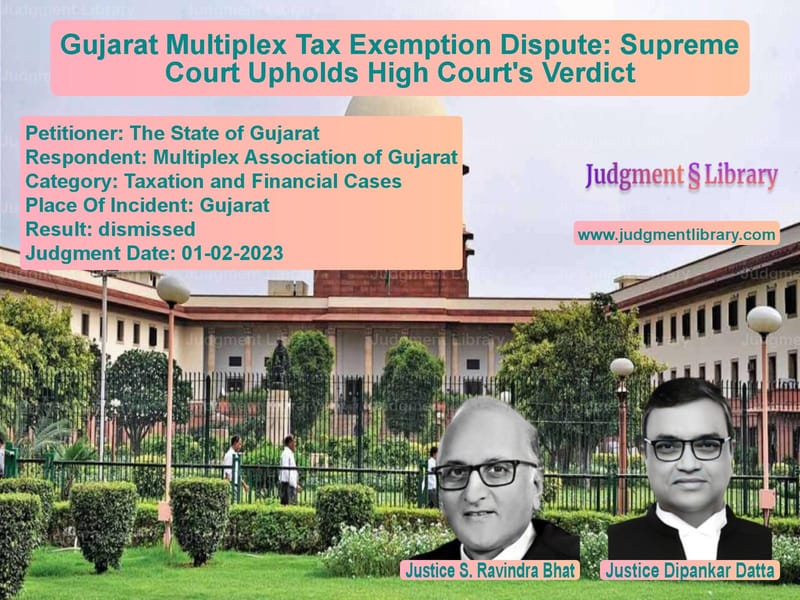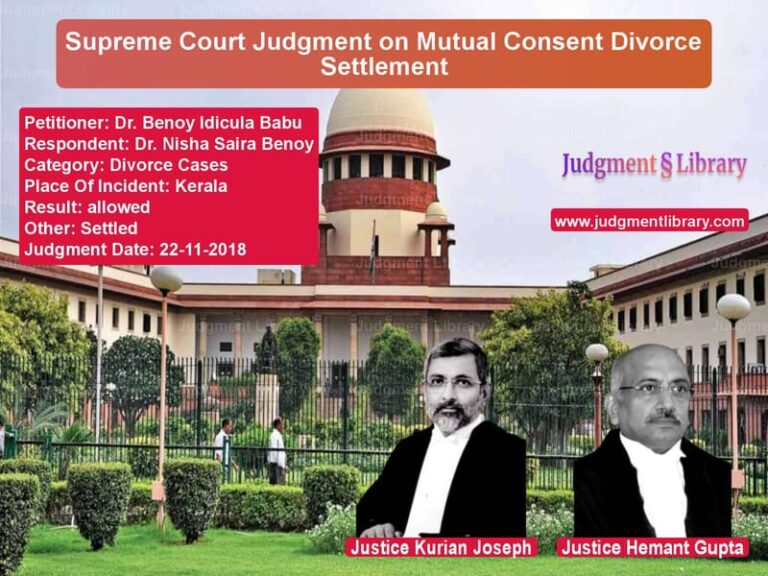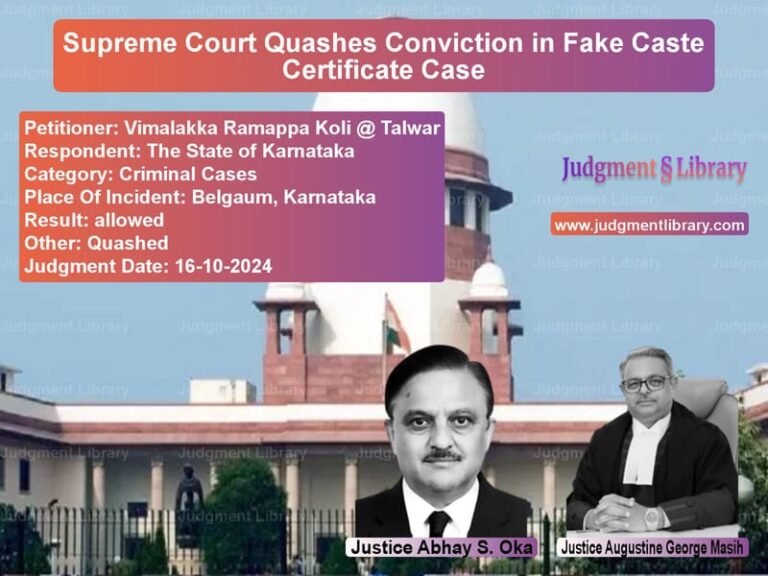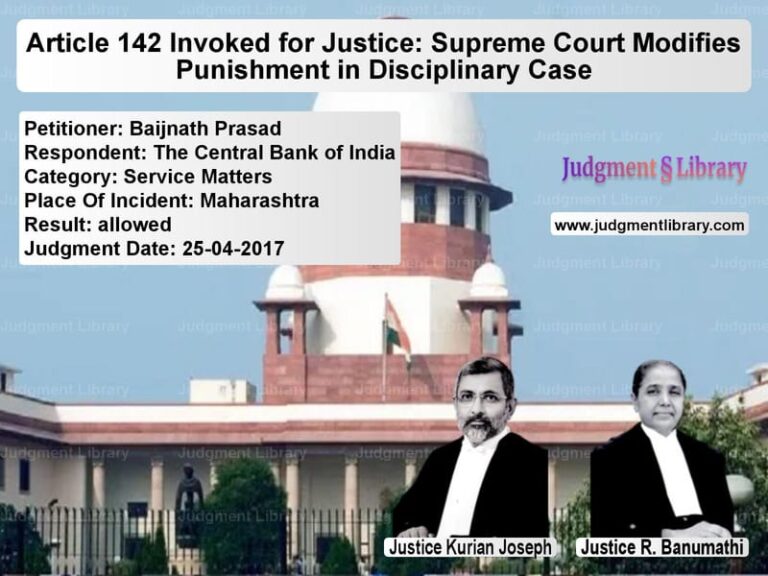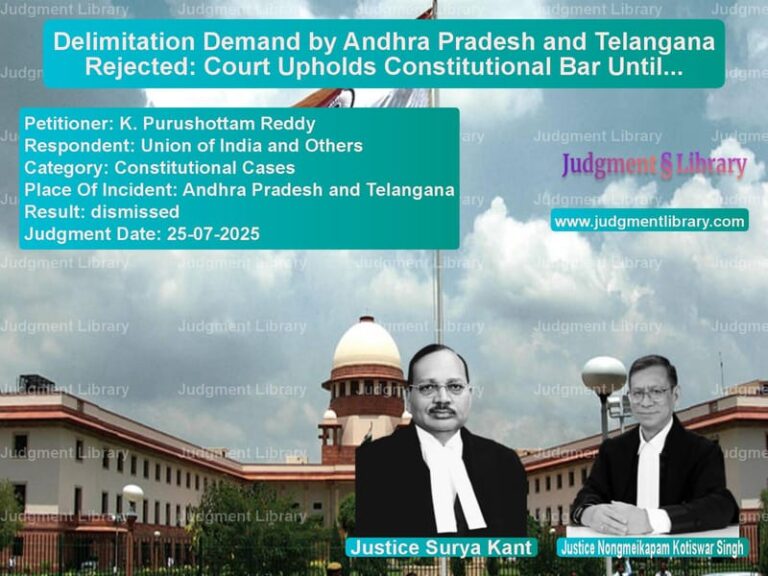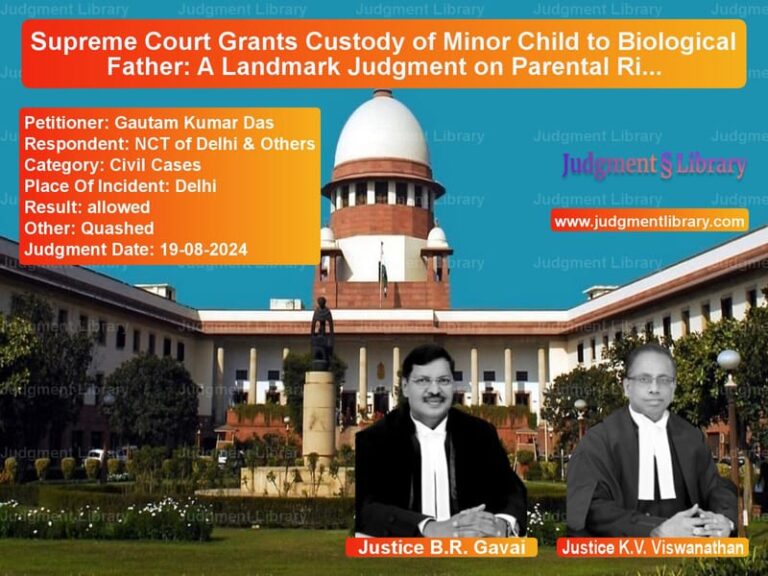Gujarat Multiplex Tax Exemption Dispute: Supreme Court Upholds High Court’s Verdict
The case between the State of Gujarat and the Multiplex Association of Gujarat revolved around the interpretation of tax exemption limits granted under the state’s incentive scheme for tourism projects. The Supreme Court was tasked with deciding whether the method proposed by the state government to calculate tax exemptions was valid, or whether the multiplex owners’ approach should be upheld.
Background of the Case
The Gujarat government had introduced the ‘New Package Scheme of Incentives for Tourism Projects, 1995-2000’ to boost tourism investment by offering various tax exemptions. Multiplexes, classified as ‘Entertainment Complexes,’ were eligible for tax holidays ranging from 5 to 10 years, depending on their investment size. The exemptions covered multiple taxes, including sales tax, turnover tax, electricity duty, luxury tax, and entertainment tax.
Under the scheme, a tax holiday was available for up to 100% of the capital investment. However, a dispute arose over how to determine when the exemption limit was reached. The state argued that multiplex owners should add a notional entertainment tax component to their ticket prices, increasing the total exemption claim. The multiplex owners, on the other hand, contended that since no tax was collected from customers, the actual ticket revenue should be used for exemption calculations.
Arguments by the State of Gujarat
- The state contended that the multiplex owners had benefited from tax exemptions, and therefore, a tax component should be added to their actual ticket revenues for calculating exemption limits.
- It was argued that failing to include the notional tax component would lead to unjust enrichment, as the multiplexes had enjoyed exemptions while collecting full ticket prices.
- The state relied on Section 29 of the Gujarat Entertainment Tax Act, 1977, which allowed tax exemptions to certain entertainment units and argued that exemption calculations should include an assumed tax element.
- The state further claimed that multiplex owners were trying to escape their obligations under the notification after having accepted its benefits.
Arguments by the Multiplex Association of Gujarat
- The multiplexes contended that the scheme only permitted exemption on actual revenue collected and not on a notional tax amount.
- They argued that they had never collected entertainment tax from customers, making the state’s method of calculation unjustified.
- The association pointed out that multiplexes had filed monthly returns based on actual ticket sales, and the state had accepted these returns without objection for several years.
- The respondents emphasized that there was no prescribed method in the scheme for calculating the exemption limit and that the state’s interpretation was arbitrary.
Supreme Court’s Analysis and Judgment
The Supreme Court noted that the incentive scheme provided tax holidays for up to 100% of the capital investment, but it lacked a mechanism for calculating exemption limits. This led to conflicting interpretations by the state and the multiplex owners.
The Court held that the state’s assumption that a tax component was embedded in ticket prices was incorrect. Since the multiplexes were exempt from entertainment tax, no tax was ever collected from customers. Therefore, the calculation should be based solely on actual revenue, without adding a notional tax component.
The Court emphasized that exemption notifications should be interpreted strictly, but in cases where ambiguity exists, a reasonable interpretation must be adopted. It cited previous rulings, including Commissioner of Central Excise, New Delhi v. Hari Chand Shri Gopal and Commissioner of Customs (Import), Mumbai vs. Dilip Kumar and Company, which stated that exemption provisions must be applied as per their clear intent.
The Court upheld the Gujarat High Court’s decision, ruling that:
- The state cannot consider the entire ticket price as the capital value for setting off the exemption.
- The calculation of the exemption limit should be based only on actual ticket revenue collected.
- The method proposed by the multiplex owners was reasonable and aligned with the scheme’s objectives.
- The state’s demand for additional payments from multiplexes based on notional tax calculations was unjustified.
Final Verdict
- The Supreme Court dismissed the appeal by the State of Gujarat and upheld the Gujarat High Court’s ruling.
- The multiplex owners were entitled to calculate their exemption limits based on actual revenue collected, without any additional notional tax component.
- The state’s method of calculation was deemed flawed and contrary to the principles of tax exemption laws.
With this ruling, the Supreme Court reinforced the importance of clear legal provisions in tax exemption schemes and ensured that businesses benefiting from such incentives are not subjected to arbitrary financial demands.
Petitioner Name: The State of Gujarat.Respondent Name: Multiplex Association of Gujarat.Judgment By: Justice S. Ravindra Bhat, Justice Dipankar Datta.Place Of Incident: Gujarat.Judgment Date: 01-02-2023.
Don’t miss out on the full details! Download the complete judgment in PDF format below and gain valuable insights instantly!
Download Judgment: the-state-of-gujarat-vs-multiplex-associatio-supreme-court-of-india-judgment-dated-01-02-2023.pdf
Directly Download Judgment: Directly download this Judgment
See all petitions in Tax Evasion Cases
See all petitions in Tax Refund Disputes
See all petitions in Judgment by S Ravindra Bhat
See all petitions in Judgment by Dipankar Datta
See all petitions in dismissed
See all petitions in supreme court of India judgments February 2023
See all petitions in 2023 judgments
See all posts in Taxation and Financial Cases Category
See all allowed petitions in Taxation and Financial Cases Category
See all Dismissed petitions in Taxation and Financial Cases Category
See all partially allowed petitions in Taxation and Financial Cases Category

